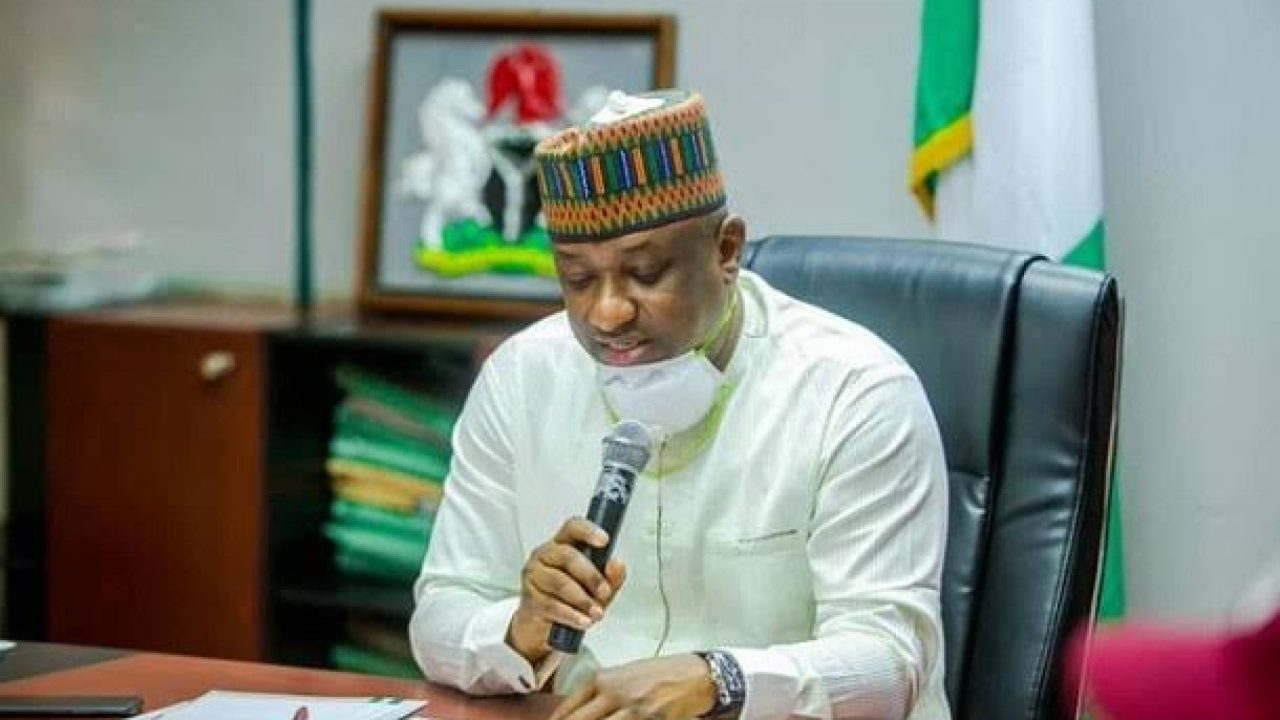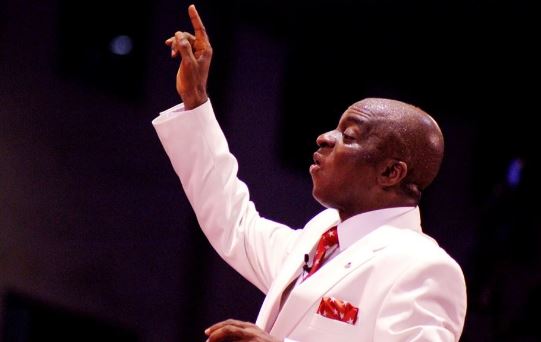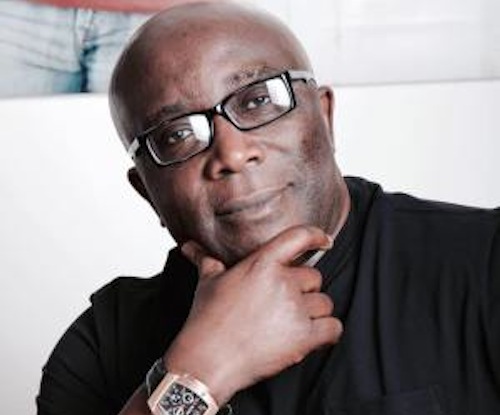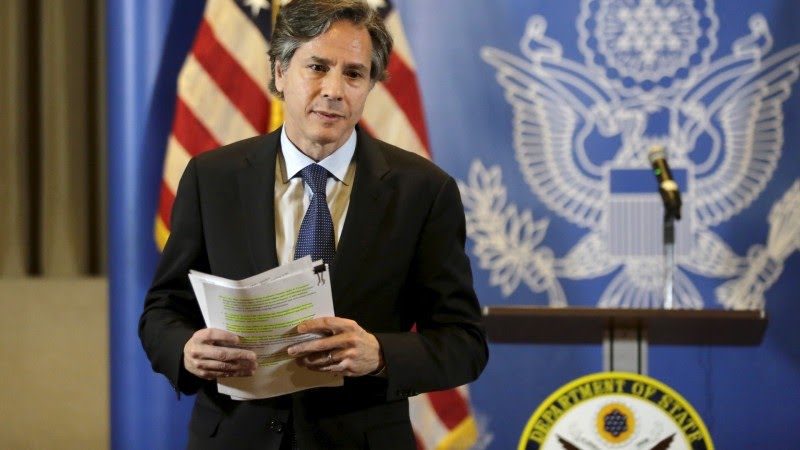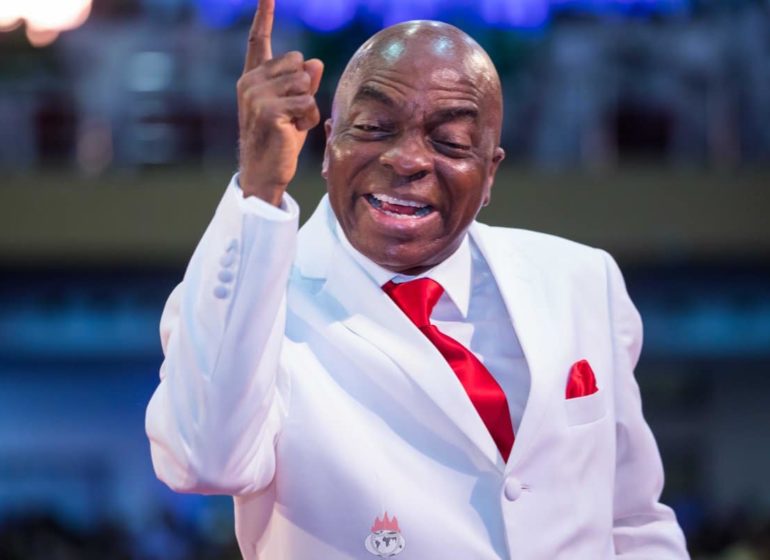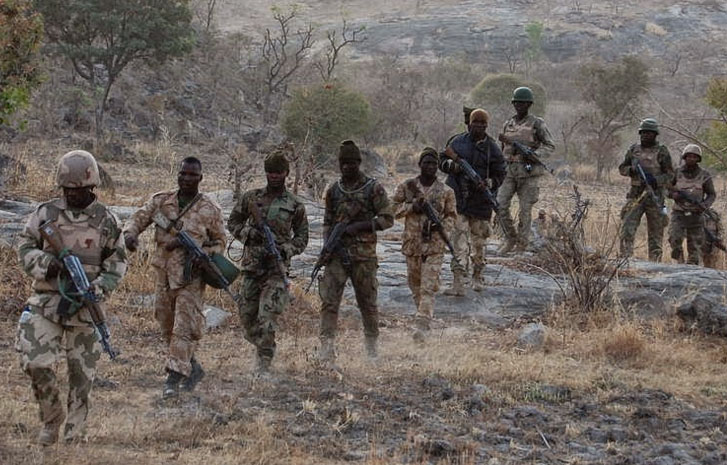By Chidi Amuta
The Buhari administration has just stumbled on a convenient but unexpected political diversion: the Twitter ban. We can keep debating Twitter while an orchestrated project of deepening authoritarianism takes hold. While Twitter rages, the president has said in his latest television interview that he has ‘ordered’ the police and the army to be more ‘ruthless’ in dealing with dissidents and to ‘shoot at sight’ those wielding assault rifles. No arrests. No investigation. No judicial trials. From a democratically elected president, the linguistic shift to garrison theatre commands should send danger signals. But perhaps this was the promised ‘next level’ in the Buhari agenda.
Still, under the shadow of the Twitter ban controversy also, Mr. Lai Mohammed has sneaked in a regulatory template requiring the entire social media to be licensed to feature in Nigeria. Again, no public debate. No parliamentary deliberation leading to an enabling legislation. Just executive fiat and ministerial directives delivered with the finality of military decrees. These are major steps in the slide towards a mindless autocracy and a culture of unquestioning acquiescence. And they are coming from an administration initially dressed up as a democratic successor regime.
With these developments, Mr. Buhari seems well on the way back to his comfort zone of autocracy. As it is, Nigeria is being timidly enrolled into the ranks of a growing club of populist autocrats and elected illiberal practitioners. Befittingly, Buhari has just been complimented by a famed mascot of that ill -fated tradition: Mr. Donald Trump. The worst president in US history has just congratulated his Nigerian equivalent for accomplishing a Twitter ban he dared not attempt. And predictably, Mr. Lai Mohammed has been quoted as having celebrated Trump’s heroic endorsement!
A thoughtless and hurried indefinite suspension of Twitter from the Nigerian internet space has just been executed. It was long foretold and rehearsed. It is perhaps the first step in the actualization of a long hunger for curtailing the footprints of the social media and indeed the freedom of expression represented by the media in general. For an administration in the throes of a concoction of multiple afflictions, the Twitter ban is perhaps the least damage to expect on the freedoms and rights of democracy. Since after the ENDSARS protests and similar other eruptions of public disquiet against the serial missteps of the administration, major officials have expressed a preference for a more quiescent and pliant public space.
This is of course a tragic misreading of the nature and natural disposition of the Nigerian public. Our life blood is a certain robust and compulsive rowdiness in all situations. Nigerians treasure their freedom. We want to say what we feel, to live loudly and drown our countless frustrations while celebrating our few victories in skits, comedy strips and lavish parties. By instinct, we dissent from official viewpoints and received assumptions. That is who we are. The social media has only come in handy to embody and channel our peculiarities as a people.
For this government, however, the Twitter ban is one culmination of a long period of discomfort with the vibrancy of Nigerians and our media. We have in the past six years witnessed a series of timid adversarial actions against the media but none so far as overt and far reaching as the recent exclusion of Twitter. Some nondescript journalists at the periphery have been detained at the instance of overbearing state officials. Some television stations have been fined or penalized for minor infractions such as using cell phone video footage to air news on the ENDSARS protests. Mr. Lai Mohammed, Mr. Buhari’s propaganda Czar and his Aso Rock backup squad have found cause to spar with the media on the less than impressive track record of the administration on nearly everything.
Twitter’s deletion of a menacing and divisive comment by Mr. Buhari on the Nigerian civil war is at the heart of the current impasse. For Twitter, the Buhari post constituted a violation of its policy against hate speech and incendiary utterances by persons in positions of significant power and influence. In strict enforcement of its policy on these matters, Twitter promptly and routinely took down the Buhari post which in any case was as unpopular with the Nigerian audience as it may have irked other Twitter users all over the world. Mr. Buhari’s unguarded outburst has predictably reverberated badly among segments of Nigeria’s already charged and badly divided polity.
Taken on its own, the Buhari post was a violation of Twitter’s rules but also a credible threat to the national security of the country over which he presides. Twitter was right in taking it down just as it was right in also taking down incendiary posts by Mr. Nnamdi Kanu, the absentee self- appointed Biafra champion and impressario.
Over time, Twitter and the other social media platforms have come to occupy the position of global conduits of freedom of expression. This universal purpose has often come to eclipse the fact that these social media platforms are outgrowths of huge corporations with in- house ethical prescriptions and rules. Those who use these media often forget that the freedom of expression which they avail us all is undergirded by rules and regulations endorsed by their respective boards of directors and proprietors.
Thus, a voracious connoisseur and utilizer of Twitter like America’s former president, Mr. Donald Trump, temporarily forgot that even drunken reverie has its rules. Once it became clear that Mr. Trump’s use and consumption of the social media had become potentially dangerous to America’s identity and national security as a democracy, the social media corporations moved against him. He was excluded by all the platforms. While his other exclusions remain in place, Facebook has just extended its own for a further two years.
Irrespective of the jurisdiction in which they operate, therefore, Twitter and the other social media corporations have a right to insist on a strict observance of their corporate regulations and service rules. They of course have a responsibility to remain sensitive to the local rules and laws in these jurisdictions without waiving their prerogative of corporate independence and integrity.
It is of course the corresponding prerogative of the Nigerian or any other government to determine what constitutes a violation of its national interests. Between the protection of Twitter’s corporate integrity and the presumptive protection of the national interests of Nigeria, a fatal hiatus has occurred. But the conundrum is that the Buhari regime’s court messengers have mistaken the Nigerian national interest for the ego of their principal. They seem to have placed a higher premium on the personal ego of Mr. Buhari over and above the democratic entitlement of the Nigerian public to freedom of expression. These same Nigerians who voted for Mr. Buhari in both 2015 and 2019 constitute the definitive sovereignty of Nigeria in matters of democratic entitlements. The pendulum of sovereign superiority always swings in favour of the people. To insist and act otherwise signals a dangerous drift in the direction of dictatorship.
It is therefore surprising that Mr. Buhari and his handlers should expect Twitter to erect a different set of rules for him. There is a possibility that Mr. Buhari’s coterie of court messengers may have mistaken the global internet space for Nigeria’s increasingly illiberal and constrictive democratic space. By shutting down Twitter in Nigeria, Aso Rock court messengers have invited the additional vitriol that is being heaped on their beleaguered administration. The backlash is an unfortunate addition to Nigeria’s already bad reputation around the world.
The displeasure of the Nigerian public has of course reverberated in the free world. With predictable unanimity, the UN, US, EU, UK and Canada have jointly and severally condemned the action of Aso Rock on the Twitter matter and in fact advised a roll back. The Nigerian government has met with emissaries of these power blocs to explain its actions while they in turn have rammed home the sanctity of freedom of expression of Nigerians if indeed Nigeria still wants to be regarded as a responsibly member of the global community and desirable investment destination. How the government in Abuja navigates this risky turn is up to the diplomatic skills of its technocrats.
But the Twitter ban has raised too many other important issues about Nigeria’s present dysfunctional state. Twitter, like the rest of the social media, is a carrier of not just the values of openness and freedom of expression. It is above all else a business tool and communication channel. It carries the business communications of millions of Nigerian entrepreneurs and corporate bodies. It carries the micro advertisements of millions of small to large business undertakings. For Nigerian youth, Twitter and the other social media platforms are the vehicles for their startups and digital enterprises which now provide employment and livelihood for millions of them as well as sustenance for more established businesses. Not to talk of the instant communications of all government agencies ranging from defense and security to parastatals and the diplomatic community. The clamp down on Twitter therefore did not seem to take into consideration the vast gamut of collateral casualties has entailed.
In a period of dwindling government revenues and shrinking opportunities, a deliberate government action that leads to such massive financial and economic loss is not only insensitive but also pathetically foolish. It is even an act of economic sabotage committed by the government against itself and its citizens.
In the age of globalization, the massive patronage of the social media by segments of the Nigerian population has helped Nigerian citizens and organizations to become part and parcel of the global architecture of transnational business and culture. Our churches, mosques, banks, digital enterprises, entertainment companies, performing artists etc. are now part of the global network courtesy of the digital revolution facilitated by the various channels and social media platforms. By constraining just Twitter alone, the vital linkage between these Nigerian global corporate citizens and their home base is being threatened by the actions of the clique in Abuja.
Nigeria’s diaspora is not just a cultural and demographic force. It remits home an average of $35 billion annually, a quantum of revenue in excess of annual receipts from oil and gas exports. By the casual fiat of an egocentric monarch and his backup escorts, we are threatening this vital national asset with digital exclusion.
Most importantly, Twitter and the other social media platforms have become an active and permanent part of the new ecology of the globalization of freedom and democracy. All over the world, those who seek more freedom in their political space have come to deploy the power of the social media. During the Arab Spring, the youth of Tunisia in 2011, the protesters of the Egyptian revolution and the anti Ghaddafi protesters in Libya massively deployed the power of the social media to fell the long entrenched dictatorships of Hosni Mubarak, Muamar Ghaddafi and Abidine Ben Ali. Also, the Twitter Revolution in Moldovia (2009) and the Iranian election protests ten years ago were similarly powered by widespread deployment of the social media by armies of youth and multitudes of troubled ordinary people.
The two critical forces and value systems that lie at the root of today’s human progress are democracy and the free open market. Both are increasingly powered by the new technologies of information flow through the internet and the social media. They are endangered each time a platform of freedom is assaulted or constrained by the forces of authoritarian imposition.
Perhaps unconsciously, the assault on Twitter indecently enrolls Nigeria into the infamous club of nations that are indifferent at best to democratic values. This unfortunate club includes the likes of Turkey, China, Hungary, Vietnam, Iran, Bangladesh, North Korea and Uganda all of whom have varying degrees of restrictions on the social media. These are countries in where those who opt for free expression are regarded and treated as an opposition that must be muzzled, repressed and silenced.
For all the noise that it has generated so far, however, the Nigerian Twitter ban remains an unfortunate deliberate political diversion. It is a diversion by a government that has run out of governance ideas and policy options in the face of overwhelming existential problems. On the scale of the problems confronting Nigeria today, an unjustified swift Twitter ban is the least urgent matter on the table. Yet it has been unleashed with maximum haste and minimum contemplation or even deliberation. Nigerians are openly wishing that their government could deal with banditry, kidnapping, industrial scale abduction of school children, abject poverty and unemployment with nearly half the speed and urgency of the Twitter ban.
Suddenly, an effete machinery of state that has been overwhelmed and outgunned by ramshackle terror gangs found its mojo only in dealing with an intangible app on our cell phones. Yet we are in a place where factional fire fights and incendiary rhetoric by separatist forces has drowned the voice of the government. The state cannot manage to summon a counter narrative to the divisiveness that its own deliberate policies has generated. An economy that is wracked by the collapse of oil and the debilitating disruptions of Covid-19 has left the majority of Nigerians breathless in the chokehold of abject poverty.
The resulting fractured and mashed up society has become a festering cesspool for all manner of criminal endeavours. A national society that once thrived on the basis of its sense of communitarian solidarity and mutual trust has become shredded into enclaves each fenced in by distrust, hate of the other and illusions of isolated self determination.
A national dream once driven by pride in the grandeur of the African dream has become shrunk into shriveled yearnings for miserable little tribal republics. This sorry spectacle is the direct result of Mr. Buhari’s project of constrictive nativism and deliberate shrinkage of Nigeria to the size of his ethno-regional fiefdom. The agitations for Biafra, Oduduwa and whatever else now on the menu of national disintegration are direct responses to the exclusionist statecraft of the Daura musketeer.
And yet, there sits in Aso Rock a government that parades an electoral mandate and a banner of democracy. A pathetic and pliant National Assembly sits in ready acquiescence to the most basic reflexes of an authoritarian executive spewing policy options rooted in Medieval conservatism and simplistic village mores.
You must have a nation before you grandstand on what media should thrive and which to exclude. You must have a functioning secure nation before you deploy the instruments of law enforcement and justice to the hounding of opponents or those who download VPN to access Twitter.
Before we make Twitter the issue, let us first address the consolidation of injustice as the directive principle of state policy under Mr. Buhari’s Nigeria. Serial grandstanding by regime megaphones cannot compensate for the embarrassing incompetence that has become the trademark of the current administration. There is no point looking for any regime adversaries in our current travails; the enemy is in the house.
Before we allow government resources to be deployed in a foolish search for a Chinese internet firewall as an alternatives to the social media, let us remind our overlords in Abuja that China and even North Korea at least have effective states whose political preference happen to be different from the Western model of democracy and freedom. You cannot foist a restriction on information and communication on a nation whose boisterous diversity defies constriction. Nor can you lock up our bustling town hall of ideas, talents, enterprise and the creativity of 200 million Nigerians.
The nation over which Mr. Buhari presides is already a blood spattered canvass and an anarchic place. To impose an autocracy on top of an anarchy is a reckless excursion into power adventurism. Twitter and the social media provide a free aperture for social and political ventilation for our people. To shut that opening is an open invitation to defiance and angry protest. I would not know whether this eventuality was intended but it is a clear and present hazard.
The Twitter ban and the threat of regulation on the social media are open invitations to the fire next time. The wise thing is for government to quietly withdraw those untidy invitations. And very quickly, too.

